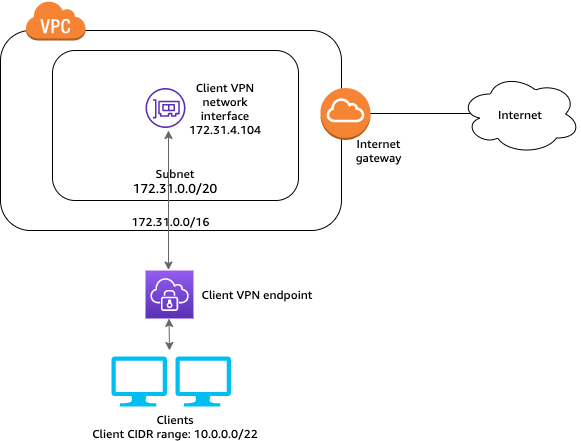Understanding the Basics of VPN Client
What is a VPN Client?
A VPN client is typically desktop software, which is designed for use on a personal computer. Some advanced mobile gadgets such as iPhone also have specific VPN clients installed. Using a VPN client, a remote worker can connect to the company VPN network and work in his virtual office network from anywhere in the world.
Where there is client software, there is a corresponding server, which handles communications from the client software. In the VPN client server architecture, the VPN client communicates with a dedicated company VPN server known as Network Access Server (NAS).
Thus the VPN server client is a critical component of the company VPN system. Examples of VPN clients include the Cisco VPN client, NCP Secure Client, Cisco RV042 VPN client, Zyxel VPN client and Juniper VPN client.
Working of a VPN Client Example of Cisco VPN Client
In order to connect to a company VPN network, a worker needs to use the VPN client, which is installed on his or her personal computer.
Let us take the example of the Cisco VPN Client. Some of the steps involved in using the Cisco VPN client are:
- First connect to the Internet – The remote user first needs to connect to the Internet through a dial-up connection, broadband connection and wifi or through a mobile device.
- Start the VPN client Next, the Cisco VPN client on the desktop should be launched. Necessary configurations to the VPN client can make to connect with the Cisco VPN Server.
- Connection with the Cisco VPN Server The Cisco VPN client communicates with the Cisco VPN Server. The connection is private, secure and cannot generally be accessed by those outside the VPN network.
- Authentication by the VPN server The VPN server does a check to see if the client communication is a legitimate and authorised.
- Start work through the Cisco VPN client The user can now do official work on his or her office network through the VPN client.
The above steps are a simplified description of the working of a VPN client. VPN server client communication involves much complexity including encryption mechanisms.
Encryption and 64 bit IPSec VPN Client
Data security is of paramount importance in communication over company VPNs. The use of encryption and decryption mechanisms makes the VPN a secure network.
Internet Protocol Security (IPSec) is a protocol used in VPN to provide better security for the information being transmitted over the network. IPSec often uses an encryption method called tunnelling. Data packet transmitted over networks typically contains a header component and a payload, which has the actual data. Tunnelling encrypts both the header and the payload before sending it over the Internet. The receiver decodes the data. In an IPSec compliant VPN configuration, the data sent from the VPN client is encrypted using tunnelling. The VPN server then decrypts this data.
Cisco released a 64-bit IPSec VPN client in April 2010. The Cisco VPN Windows client supports 64-bit operating systems such as Windows 7 x64 and Vista x64. The IPSec compliant Cisco VPN Windows Client does not yet support Windows XP. The NCP Secure Client is a 64-bit IPSec VPN Client which offers support for Windows XP (64 bit) also. Ciscos VPN XP client currently only supports 32-bit Windows XP and does not have a VPN Client XP 64 bit. Sonicwall Global VPN client supports 64-bit Windows XP.
SSL VPN Client
A Secure Sockets Layer or SSL VPN does not use separate SSL VPN client software in order to connect to the office VPN. In an SSL VPN configuration, the remote worker can just use an Internet browser to communicate with the VPN server.
Unlike IPSec VPN clients, users can connect to their office VPN from any machines without the need for specific SSL VPN client. While this provides greater ease of use, it also risks security lapses as the user may also access his or her VPN using a public computer at an Internet browsing centre.
SSL VPN solutions providers such as Cisco also offer a SSL VPN client which can be downloaded to a users computer. The user has the option of using the SSL VPN environment through a browser or through the SSL VPN client provided for download.
Free VPN Client Download
There are various free VPN clients available for specific operating systems. Lets take a look at some of these free VPN clients:
- Shrew VPN client Shrew Soft Inc offers a free VPN client – the Shrew VPN client for Windows, Linux and BSD operating systems. It provides the free VPN client download at www.shrew.net/software
- VPN Client for Ubuntu Ubuntu Linux (www.ubuntu.com) is an open source operating system, which has its own built-in open-source VPN client, available for free download. The VPN client for Ubuntu can work with a Cisco VPN Server.

ExpressVPN Fast, anonymous browsing all over the world | ||
NordVPN Enjoy online privacy and security with a reliable VPN | ||
Cyber Ghost Browse anonymously with reliable security | ||
SurfShark Affordable and reliable VPN for secure browsing | ||
ZenMate Experience the internet anonymously | ||
Purevpn Keep your data secure with a VPN built for privacy |








